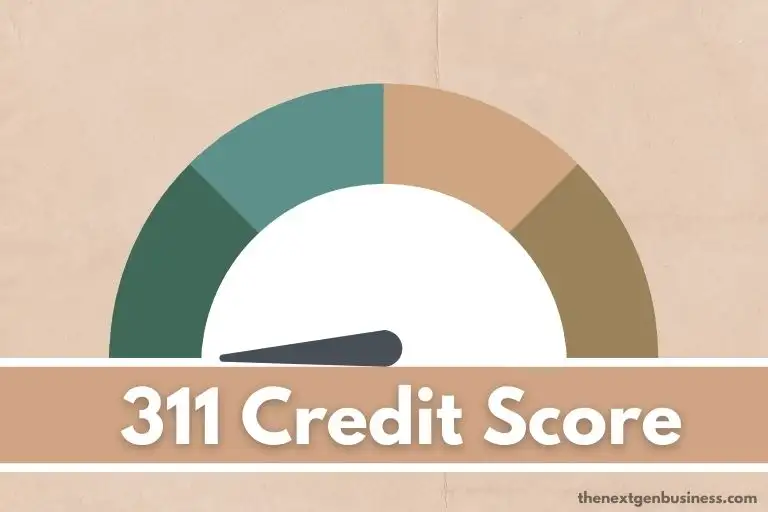
Credit scores are an important factor in a person’s financial life. Not everyone is taught what a credit score is. In short, they are used by banks and other financial institutions to determine a person’s creditworthiness, which can affect their ability to borrow money and a multitude of other factors.
A good credit score can open doors to low-interest rates and favorable loan terms, while a poor score can make it difficult to secure a loan and can result in higher interest rates and unfavorable loan terms.
Below, we will take a closer look at what these scores are, how they are calculated, and what steps you can take to improve your score.
What is a Credit Score and Why is it Important?
A credit score is a numerical representation of an individual’s creditworthiness, based on their credit history. It is typically calculated by credit bureaus using a proprietary algorithm that considers factors such as payment history, credit utilization, length of credit history, and types of credit used.
Having a good score is important for a number of reasons. Firstly, it allows individuals to access credit at favorable terms, such as lower interest rates and higher credit limits. This can save them money on their loans and credit card balances, as well as allow them to make larger purchases, such as a home or a car.
Secondly, a good credit score can also be a factor in a person’s ability to rent an apartment or obtain certain jobs, as some landlords and employers may consider an individual’s credit score as a measure of their trustworthiness and financial responsibility.
How is a Credit Score Calculated?
As mentioned above, credit scores are calculated by credit bureaus using a proprietary algorithm. The most widely used credit score is the FICO score, which ranges from 300 to 850 and is calculated by FICO.
The FICO score considers the following factors in its calculation:
- Payment history (35%): This includes whether the individual has made timely payments on their credit accounts, as well as any late payments, collections, or bankruptcies.
- Credit utilization (30%): This is the amount of credit the individual is using compared to their total credit limit. It is generally recommended to keep this below 30%, as using a high percentage of available credit can signal to lenders that the individual is relying heavily on credit and may be at a higher risk of default.
- Length of credit history (15%): This is the length of time the individual has been using credit. A longer credit history can demonstrate to lenders that the individual has a track record of responsible credit use.
- Types of credit used (10%): This is the mix of different credit accounts the individual has, such as credit cards, personal loans, and mortgages. Having a variety of credit accounts can show lenders that the individual is capable of managing different types of credit responsibly.
- New credit (10%): This is the number of new credit accounts the individual has opened recently, as well as the number of credit inquiries they have made. Too many new credit accounts or inquiries in a short period can indicate to lenders that the individual is seeking a large amount of credit and may be at a higher risk of default.
What is a Good Credit Score?
A good credit score varies depending on the specific score range and the context in which it is being used. However, in general, a score of 700 or above is considered good, while a score of 800 or above is considered excellent.
In the case of the FICO score, a score of 670 or above is considered good, while a score of 740 or above is considered excellent. Lenders may offer individuals with good or excellent credit scores lower interest rates and higher credit limits on loans and credit cards, as they are considered to be at a lower risk of default.
How to Improve Your Credit Score
If you have a low credit score, there are steps you can take to improve it. Here are some tips to help you boost your credit score:
- Make sure your credit report is accurate: Check your credit report regularly to make sure all the information on it is accurate. If you find any errors, dispute them with the credit bureau.
- Pay your bills on time: Payment history is the most important factor in determining your credit score, so it is crucial to make all your credit payments on time. Set up automatic payments if necessary to ensure that you never miss a payment.
- Keep your credit utilization low: Aim to use no more than 30% of your available credit on your credit cards. If your credit utilization is too high, it can hurt your credit score.
- Don’t open too many new accounts at once: Opening too many new credit accounts in a short time can hurt your credit score. Instead, focus on managing the credit you already have.
The Downsides to Having Bad Credit
- Higher interest rates and fees on loans and credit cards: Lenders may charge higher interest rates and fees on loans and credit cards for individuals with bad credit, as they are considered to be at a higher risk of default. This can significantly increase the cost of borrowing and make it more difficult to repay debts.
- Limited access to credit: Individuals with bad credit may have difficulty obtaining credit, as lenders may be hesitant to lend to them. This can make it difficult to make large purchases, such as a home or a car, and can limit their financial options.
- Difficulty renting an apartment or obtaining certain jobs: Some landlords and employers may consider an individual’s credit score when deciding whether to rent an apartment or offer a job. Individuals with bad credit may face difficulties in these situations, as their credit score may be seen as a measure of their trustworthiness and financial responsibility.
- Damage to personal and professional relationships: Bad credit can also damage personal and professional relationships, as individuals may be unable to borrow money from friends and family or may face difficulties in obtaining loans for their businesses. This can lead to strained relationships and financial stress.
- Emotional distress: Dealing with the financial and personal consequences of bad credit can be emotionally difficult, as individuals may feel overwhelmed and stressed by their financial situation. This can lead to feelings of anxiety and depression, which can hurt their overall health and well-being.
What You Should Know
A high credit score can have several benefits, including improved chances of getting approved for credit, access to a wider range of financial products, and lower insurance premiums. On the other hand, a low credit score can make it difficult to get approved for credit and can limit your financial options. It is important to manage your credit wisely and work to maintain a high credit score.






